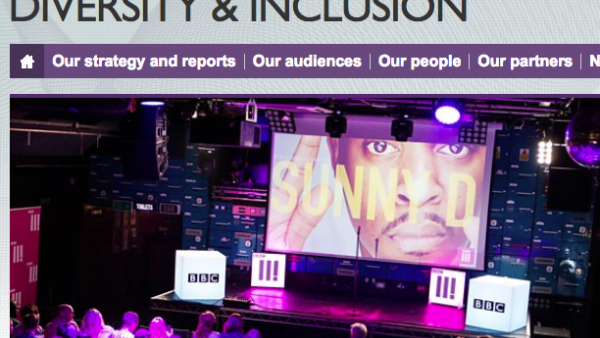The British Broadcasting Corporation (BBC) has ignited controversy in the U.K., sparking debate in the House of Commons.
A job opening published by the organization specifically made clear that the position applied to individuals from a “non-white ethnic minority background.”
The job advert created controversy in a country where many young people are looking for jobs, 80% of the population are ethnically white (latest 2011, UK census), and all British citizens are required to pay the broadcasting corporation a ‘TV LIcense Fee’ of £145.50 per year.
In a select committee of the British House of Commons, conservative MP David Davies called the BBC advert “racist” and said that “I think that the true racist sees everything in terms of race, or color. Surely what we should be aiming to be is color blind.”
The BBC have stated that the job advert is legal under UK Law, and organised by an independent contractor.
The controversy comes after a tumultuous twelve months for one of the world’s largest broadcasters. The BBC has been criticized for ‘deep-seated bias’ by possible future prime minister Rees Mogg and Defense Secretary Liam Fox, pointing to a headline entitled, “U.K. construction rises despite Brexit vote.”
The organization has been attacked in popular culture and on social media as incubating an ideology that is favorable towards the British cultural and political establishment. A recent interview with a Canadian writer Jordan Peterson has also seen the BBC accused of seeking to discredit panelists it does not agree with, rather than complying to strict journalistic standards.
The increased scrutiny in regard to the BBC that is taking place online, and offline, may reflect the divisive nature of the political debate subsequent to Britain’s BREXIT vote in 2017. It may also feed into a wider phenomenon of push-back against the power of the media generally, both in Britain and America.
The BBC have stated that the job advert is legal under UK Law, and organised by an independent contractor.
The controversy comes after a tumultuous twelve months for one of the world’s largest broadcasters. The BBC has been criticized for ‘deep-seated bias’ by possible future prime minister Rees Mogg and Defense Secretary Liam Fox, pointing to a headline entitled, “U.K. construction rises despite Brexit vote.”
The organization has been attacked in popular culture and on social media as incubating an ideology that is favorable towards the British cultural and political establishment. A recent interview with a Canadian writer Jordan Peterson has also seen the BBC accused of seeking to discredit panelists it does not agree with, rather than complying to strict journalistic standards.
The increased scrutiny in regard to the BBC that is taking place online, and offline, may reflect the divisive nature of the political debate subsequent to Britain’s BREXIT vote in 2017. It may also feed into a wider phenomenon of push-back against the power of the media generally, both in Britain and America.








